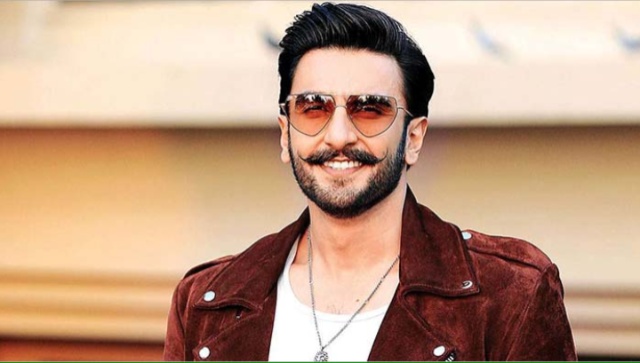Language: Malayalam
American entertainment – films and shows that the Indian masses are most exposed to among global entertainment options – tend to be filled with adults who were scarred by their parents, and it is commonplace to hear such characters utter this lament: “Oh my god, I have become my Mum/Dad.” If that is one extreme of the relationship spectrum, Indian mainstream cinema is the other, dominated by mothers and fathers who are adored by their dutiful daughters and sons. Director Dileesh Pothan’s Joji is a departure from the Indian norm but steers clear of American clichés.
Imagine being faced with the prospective death of a parent you dread, resent or at best, dislike. That’s the situation in which this film’s eponymous hero (Fahadh Faasil) finds himself along with the motley band that is the Panachel joint family.
Joji has a close, informal relationship with Bincy (Unnimaya Prasad), who is married to his diffident elder brother Jaison (Joji Mundakayam). The eldest sibling Jomon (Baburaj) is a tempestuous alcoholic who, along with his son Popy (Alister Alex), shares their sprawling dwelling.
When the patriarch Kuttappan PK Panachel (PN Sunny) has a stroke, his heirs must balance their true feelings towards him with the façade they maintain before society.
Kuttappan is a go-getter, a physically intimidating man who sticks to a tough exercise routine despite his advanced years, distrusts his offspring with good reason and assaults at least one of them. When he falls grievously ill, the reactions in his household range from relief in certain quarters that he will not find out about their misdemeanours to fear that he will be furious at how his business was run in his absence and anxiety over whether he has written a will.
Although none of the characters is above reproach, they are not above passing judgement against the others, but the team of the film itself does not. Even when the Panachels do horrible things or turn a blind eye to someone else’s horrifying conduct, they are not painted as stereotypical villains. In fact, they are normal/ordinary-looking people who commit crimes and misdeeds with an air of everydayness – it is this that makes their exploits both shocking and amusing.
Joji paints an intriguing portrait of the antonym to mourning in this house of intrigue. Like some of the best of Malayalam cinema’s New New Wave , it is a thoughtful, watchful film in which a chain of events unfolds at a natural pace, presenting a wealth of insights into Malayali culture and customs along the way. The succession-related concerns in the Panachel home, gossip by those claiming to support them, the local church’s influence in their lives, the tense relationship between the parish priest (Basil Joseph) and this moneyed family all add up to a delightful black comedy that perhaps only Dileesh Pothan and writer Syam Pushkaran could have made.
This is Dileesh’s third directorial venture – all three with Fahadh – coming on top of the success of Maheshinte Prathikaaram (2016) and Thondimuthalum Driksakshiyum (2017). Syam’s enviable filmography includes Maheshinte Prathikaaram, Mayaanadhi and Kumbalangi Nights . The trio have been at the forefront of the Malayalam cinema movement that has been making waves across India.
Joji lives up to their track record with its detailing, acute powers of observation and kookie sense of humour, all backed by stupendous acting.
The story is unequivocally centred around Fahadh’s character, and the actor plays a deceptively calm layabout simmering with rage with the sort of unassuming brilliance that is now his trademark. Joji’s indolence, for one, is established not just through the overtness of Jomon’s taunts or the realisation that Kuttappan used to refer to his youngest son as “second piece”, but by small touches such as that early scene in which he switches on a video classroom session, immediately flops down on a bed and uses his feet to lift the sheet off the foot of the bed to partially cover himself because he is averse to the exertion involved in reaching out for it with his hands.
A major shortcoming in Mollywood’s much-praised new generation cinema is the infrequency of stories about women. Dileesh’s films too have revolved around their male leads and been populated primarily by men, but he has done better than his contemporaries – not enough, but better – by featuring at least one significant female character in each of his works who has agency and is written with empathy. Jimsy was a feisty match for Mahesh, Sreeja was crucial to Thondimuthalum, and here in Joji, a major character’s conscienceless moves are reliant on Bincy’s complicity.
Playing the other member of the Panachel ensemble who, like Joji, camouflages her frustration, Unnimaya (also credited as an executive producer here) is excellent as Bincy. Barring one outburst, she does not betray the churn below her surface composure. Through her, Dileesh underlines the patriarchal attitudes in this home, with the demands made by her lazy brother-in-law, the mild-mannered Jaison’s flow of instructions to her, the messy kitchen counter Joji leaves behind – not The Great Indian Kitchen -grade contemptible, but noticeable all the same – and the threat of violence he directs at her at one point.
This brings us to Joji’s tenuous connection with Shakespeare. The opening text on the screen says the film is inspired by Macbeth. Dileesh reportedly took inspiration from the basic framework of Macbeth and did away with the plot. If a link has to be drawn at all, it is this: that in both, the ‘hero’ indulges in behaviour that leads to a string of occurrences racing out of his control, compelling him to do worse and worse.
(Alert: the next three paragraphs do not reveal plot specifics, but some readers may wish to skip them)
Macbeth, though, is an able soldier driven by a prophecy, crazed ambition and instigation by Lady Macbeth. Joji, on the other hand, is a slothful fellow who is spurred to action by anger, a desire for revenge in the face of humiliations and a keenness to break free of what he considers shackles while failing to introspect about his lethargy and untrustworthiness. Joji gives the impression of being casual, Macbeth never does. Bincy urges Jaison – not Joji, who I assume is the Macbeth of this film – to approach his father with a proposal that makes him uncomfortable. The idea does not come from her– it comes from a man.
If anything, Joji turns the Lady Macbeth template on its head. Shakespeare was fond of the stereotype of a woman as an instigator of a reluctant man, which I suspect is rooted in the Biblical mythology of Eve leading Adam to temptation. Syam places the responsibility for Joji’s wrongdoings entirely on the man himself.
Perhaps it can also be said that Joji Panachel is both Macbeth and Lady Macbeth, driven to nightmares – in the film’s most alarming sequence – and sleeplessness by the worry that he might get caught, much like yet unlike Lady M’s legendary sleepwalking scenes that are born of guilt instead.
(Alert ends)
The acting and writing of Joji are so nuanced that it often seems like nothing much is going on here despite the world of turmoil on display. Even the masks necessitated by the ongoing COVID19 pandemic, during which this story is set, take on a whole new meaning in the imagination of this screenplay. Whether intentionally or not, in an India that has long debated the use of pellet guns on Kashmiri civilians, Joji even makes a statement on the lethal nature of these weapons.
The fantastic supporting cast play the characters around Joji with an understatedness that is this film’s hallmark, backed by editor Kiran Das who lingers over telling moments instead of rushing past them in the quest for needless energy. DoP Shyju Khalid seems as comfortable dishing out extravagant shots of the countryside as with turning the Panachel residence into a disquieting space. Justin Varghese’s music and Ganesh Marar’s sound design are both wonderfully restrained, and deployed to either rev up the urgency or emphasise the meditative tone of scenes.
The difference between the rest of the characters and the protagonist of Joji is that they are people of questionable morals but he, as we gradually discover, has none at all. There are boundaries they do not cross, he draws no lines.
Trust the man who wrote Kumbalangi Nights to write a tale of immorality rivalling amorality, and make it startling, tongue-in-cheek, whimsical and comical in equal measure.
Rating: 3.5 (out of 5 stars)
Joji is streaming on Amazon Prime Video


)




)
)
)
)
)
)
)
)